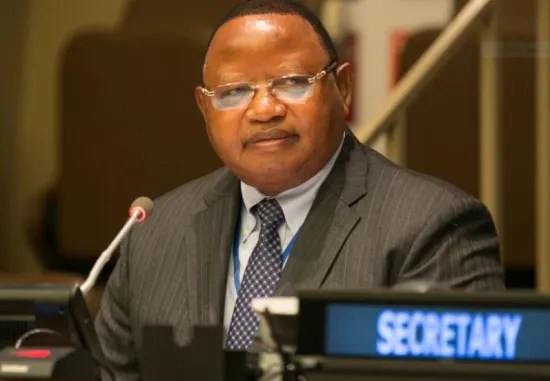
Opening Zimbabwe for business, in principle is a noble initiative because sectors like mining have a huge appetite for investment.
By Mukasiri Sibanda
However, the constitutional right for communities to benefit from the exploitation of resources in their localities must never be compromised.
Regrettably, Community Share Ownership Trusts (CSOTs), established to ensure equitable participation of communities affected by mining operations no longer have legal backing outside diamond and platinum sectors. A position that was created by the Finance Act of 2018.
Lately, the Minister of Finance, Prof Mthuli Ncube opined that the government will remove indigenisation requirements for platinum and diamond sectors.
To enable the public and other interested parties to appreciate what is at stake, this write up is a compilation of interesting facts and figures on Gwanda Community Share Ownership Trust (GCSOT).
The facts and figures were sifted from the community data extractors held by the Zimbabwe Environmental Law Association (ZELA) to improve mining fiscal transparency in Zimbabwe.
The signature intention of the programme is to equip community members with skills to mine data, process the data to formulate data driven advocacy messages for transparent and accountable management of mineral revenue.
facts and figures
- 2012, is the year GCSOT was launched.
- 2, Gwanda and Umuguza are the only CSOTs that received share certificates out of 61 established CSOTs.
- 10% equity was donated to GCSOT by Caledonia’s Blanket gold mine.
- 5% equity was given to GCSOT by Pretoria Portland Cement (PPC) through a vendor finance arrangement. The other 5% equity was given to Umguza CSOT because PPC has a cement plant in Umuguza.
- 80:20 ratio, dividend paid to GCSOT by PPC, 80% is for repayment of the vendor loan for the purchase of shares and 20% constitute income for Gwanda CSOT.
- US$1 million was donated to GCSOT by Blanket mine.
- US$4 million, an advance dividend that was paid to GCSOT by Blanket mine.
- 15 years, the time GCSOT is likely to take to payback advance dividend of US$4 million.
- US$1.5 million, the money that was donated to Gwanda CSOT by PPC
- $500,000, the amount of money that was pledged by Jesse gold mine
- $250,000 is the amount that was paid by Jesse mine to GCSOT
- 0 is the amount paid by Vumbachikwe gold mine to GCSOT
- $5.5 million is the amount of money currently available in GCSOT coffers in 2019
- GCSOT’s fiscal muscle weakened by monetary policy measures which led to its balance being denominated in RTGS dollars instead of US dollars. Ironically, mining is the lead foreign currency generator in Zimbabwe. Yet mining fiscal linkages lack the firepower of foreign currency linkages to spur local economic and social development.
- To ensure sustainability, GCSOT is shifting to income generating projects for community enterprise development.
- Legal backing for Gwanda CSOT was removed by the 2018 Finance Act
- The current Minister of Industry and Commerce, Hon. Nqobizitha Mangaliso Ndhlovu is the former Matebeleland South provincial director of the now-defunct National Indigenisation and Economic Empowerment Board (NIEEB).
- Apart from gold production records shared by Blanket Mine courtesy of its listing under Caledonia in Toronto Stock Exchange, Canada, people in Gwanda do not know the volume and value of the gold extracted annually in Gwanda.
The government must open Zimbabwe for business, but it must avoid opening avenues for exploiting resource-rich communities, a right that is enshrined in the Constitution, Section 13 (4). Existing and prospective investors in the mining sector must not negotiate aggressively with the government to undermine the right of communities to benefit fairly from the exploitation of their natural wealth.
The economy desperate needs investors. However, counting a spike in foreign direct investment is a cosmetic indicator. Investment in the mining sector is only sustainable when people, planet and profits are put in that order.
Taking into consideration that the Minister of Industry has the first-hand experience on the impact of CSOTs, we hope that communities affected by mining have a champion in government.








